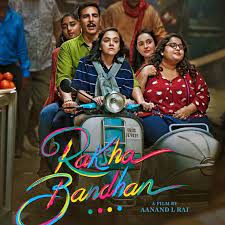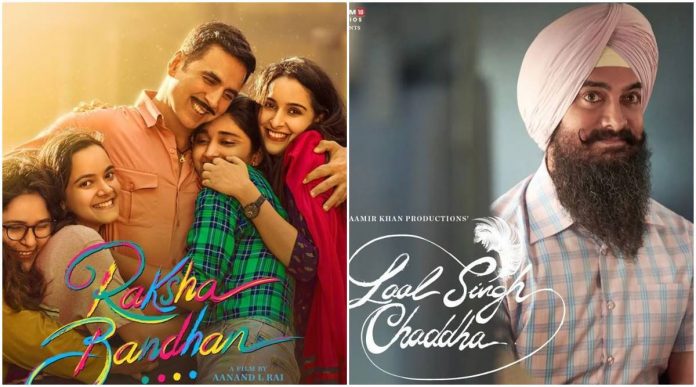Laal Singh Chaddha and Raksha Bandhan couldn’t have asked for a better release week. It was easily one of the best weeks of the year — and not just because it had eight days. The first day (Thursday, August 11) was a festive holiday (Raksha Bandhan). On the fifth day of the week, India celebrated completion of 75 years of its Independence. In other words, the mood on the 76th Independence Day was even more celebratory than on a regular Independence Day national holiday. Although Parsi New Year is observed as a partial holiday, it only added to the box-office on Tuesday, 16th August. Also, the mood on 18th (Thursday) was festive because of Janmashtami which falls today (19th). Given such massive holidays, one is not even underlining that Saturday and Sunday were the usual weekend days.
Then what went wrong with both the films? Why are the faces of the exhibitors fallen? Why is the trade so despondent? What is the reason for the shockingly low box-office collections of both the big-budgeted, star cast and well-promoted films?
Since the films are different, there can’t be one or two common reasons for the two films which are as diverse from each other as cheese from chalk, failing to make a mark.
Let’s talk of Laal Singh Chaddha first. The film, an official adaptation of Hollywood film Forrest Gump, should never have been made. It was not a story which the Indian public would appreciate and give its thumbs up to. In Forrest Gump, the American audience loved the film’s backdrop of the changing political scenario in the USA. In LSC, hardly any people appreciated references to the changing political scene in India through the film. The Indian public wants entertainment in its films. What was served in the name of entertainment in LSC was not the entertainment it has known over the years. Okay, you might argue, the makers wanted to experiment and so they made LSC. Fine! But when you experiment, you make the film in a controlled budget. That is why LSC seems to be a case of over-indulgent cinema.

But when you experiment, you make the film in a controlled budget. That is why LSC seems to be a case of over-indulgent cinema.
Another reason for calling it an immoderate exercise is that there was too much of Aamir Khan in the film. When Aamir was not on the screen, his voice (narration) did not leave the audiences in the cinema halls. Here, one is reminded of Amitabh Bachchan’s almost non-stop talking in Shamitabh till people felt like just shutting their ears! The music of LSC may have been melodious but the songs did not catch on. Had the film clicked in a big way, at least two songs from the film would’ve gone on to become hits. But that could have been the case. At the time of the film’s release, the music was not popular enough. Even the first trailer of LSC did not cast its spell on the audience. All these reasons led to the film opening to dull houses. The poor word of mouth for the film after release ensured that collections did not pick up on the following days. So pathetic were the public’s reviews that the film never even got the benefit of huge holidays like Raksha Bandhan and Independence Day!

Here, one is reminded of Amitabh Bachchan’s almost non-stop talking in Shamitabh till people felt like just shutting their ears!
Coming to Raksha Bandhan, the story was so dated that the city audiences couldn’t believe their eyes when they were watching the film. In which part of India does a brother talk to his sisters in the way Akshay Kumar talks to his three sisters in the film? There’s only one sister among the four, whom Akshay is shown to be respectful of. He refers to his sisters as kaali, motti, and such names! His girlfriend, Bhumi Pednekar, refers to the sisters as chudail! Which to-be sister-in-law would speak so derogatorily about ladies? The writers and director may have us believe that such name-calling is in jest, but who will buy this? And have you seen grown-up girls fighting for a samosa like Akshay’s sisters do in the film? Repulsive — that’s the only word to describe such scenes!

In which part of India does a brother talk to his sisters in the way Akshay Kumar talks to his three sisters in the film?
Although the film is presented as an anti-dowry film, hero Akshay Kumar professes in the film that he would love it if his sisters demanded dowry from the prospective grooms. Really? Are you trying to put an end to one evil or are you trying to give birth to another evil? The above are but a few glaring defects in the screenplay.
Are you trying to put an end to one evil or are you trying to give birth to another evil?
There are plenty of faults in the scripts of both the films. All of this underlines the fact that the makers of both have erred miserably. Our filmmakers, writers, stars and producers are still sleeping, it seems. When will they learn that poor content will not work? It may have worked in the past (as some people have been saying, although I don’t believe so) but it’s surely not going to work now. It’s because the audience is spoiled for choice today, what with content from all over the world available on OTT platforms. Their expectations have therefore soared. Sub-standard stuff is now a strict no no for them. The public has options not only as far as content is concerned but also in the form of gaming and sports. The pandemic lockdowns have got a lot of people addicted to gaming and interested in sports, both of which have become formidable oppositions for our films.
The pandemic lockdowns have got a lot of people addicted to gaming and interested in sports, both of which have become formidable oppositions for our films.
The corporate culture in films may have spelt lottery for producers and stars because it is only after the introduction of the corporate culture that film budgets and star prices have multiplied many times. And so have producers’ profit margins, at least in the case of big banners. But it is the same corporate culture which is spelling doom for the Hindi film industry. Except for doling out fat cheques, most of the corporate head honchos do not know a thing about film production. I repeat, many of the corporate heads do not understand content at all. Can you imagine that those responsible for green-lighting projects are actually not equipped for the job? Obviously, such a situation had to arise.
But it is the same corporate culture which is spelling doom for the Hindi film industry.
Films were bound to bomb the way they are flopping currently. Because after so many years of corporatisation, money has become an easy commodity for producers and stars. And when earning profits becomes as easy as it has become for top banners, why will they work hard on their content? JUST WHY? The passion has gone out from filmmaking; it seems to have given way to profit-making. Till that does not change, things are not going to improve for Bollywood. Take it from me!
The passion has gone out from filmmaking; it seems to have given way to profit-making.





























